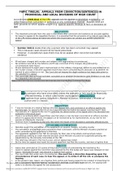Other
LLB CPR3701 12.-Appeals-from-Conviction-or-Sentence-in-Provincial-and-Local-Divisions-of-High-Court (1)
- Course
- LLB CPR3701
- Institution
- University Of South Africa (Unisa)
LLB CPR3701 12.-Appeals-from-Conviction-or-Sentence-in-Provincial-and-Local-Divisions-of-High-Court (1)
[Show more]



